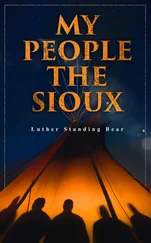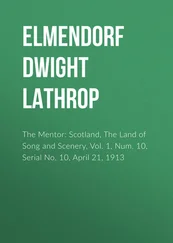Luther Standing Bear - Land of the Spotted Eagle - The Lakota Life and Customs
Здесь есть возможность читать онлайн «Luther Standing Bear - Land of the Spotted Eagle - The Lakota Life and Customs» — ознакомительный отрывок электронной книги совершенно бесплатно, а после прочтения отрывка купить полную версию. В некоторых случаях можно слушать аудио, скачать через торрент в формате fb2 и присутствует краткое содержание. Жанр: unrecognised, на английском языке. Описание произведения, (предисловие) а так же отзывы посетителей доступны на портале библиотеки ЛибКат.
- Название:Land of the Spotted Eagle: The Lakota Life and Customs
- Автор:
- Жанр:
- Год:неизвестен
- ISBN:нет данных
- Рейтинг книги:5 / 5. Голосов: 1
-
Избранное:Добавить в избранное
- Отзывы:
-
Ваша оценка:
Land of the Spotted Eagle: The Lakota Life and Customs: краткое содержание, описание и аннотация
Предлагаем к чтению аннотацию, описание, краткое содержание или предисловие (зависит от того, что написал сам автор книги «Land of the Spotted Eagle: The Lakota Life and Customs»). Если вы не нашли необходимую информацию о книге — напишите в комментариях, мы постараемся отыскать её.
Luther Standing Bear was a Sicangu and Oglala Lakota chief notable in history as a Native American author, educator, philosopher, and actor of the twentieth century. Standing Bear fought to preserve Lakota heritage and sovereignty; he was at the forefront of a Progressive movement to change government policy toward Native Americans.
"In this book I attempt to tell my readers just how we lived as Lakotans—our customs, manners, experiences, and traditions—the things that make all men what they are. There are reasons why men live as they do, think as they do, and practice as they do; hence, there were forces that made the Lakota the man he was.
White men seem to have difficulty in realizing that people who live differently from themselves still might be traveling the upward and progressive road of life.
After nearly four hundred years' living upon this continent, it is still popular conception, on the part of the Caucasian mind, to regard the native American as a savage, meaning that he is low in thought and feeling, and cruel in acts; that he is a heathen, meaning that he is incapable, therefore void, of high philosophical thought concerning life and life's relations. For this 'savage' the white man has little brotherly love and little understanding. From the Indian the white man stands off and aloof, scarcely deigning to speak or to touch his hand in human fellowship.
To the white man many things done by the Indian are inexplicable, though he continues to write much of the visible and exterior life with explanations that are more often than not erroneous. The inner life of the Indian is, of course, a closed book to the white man.
So from the pages of this book I speak for the Lakota—the tribe of my birth. I have told of his outward life and tried to tell something of his inner life—ideals, religion, concepts of kindness and brotherhood; of laws of conduct and how we strove to arrive at arrangements of equity and justice."












